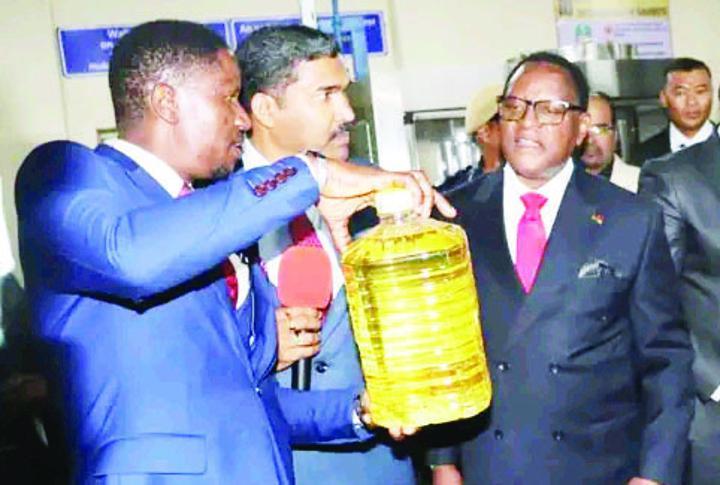Africa-Press – Malawi. Bakhresa Malawi Limited has called on the government to waive the Reserve Bank of Malawi (RBM)’s mandatory 30 percent conversion of export proceeds for companies exporting value-added products, arguing the policy is undermining formal exporters and fuelling smuggling.
Speaking at the launch of the company’s cooking oil refinery and solvent extraction plant in Blantyre, general manager Venkatesh Rao Pattipati said the policy imposed after the project’s initiation has severely impacted the company’s feasibility and operational sustainability.
Pattipati said such a waiver would greatly enhance their ability to finance imports, ensure timely payments to suppliers, sustain production across product lines and encourage further investment in local value addition and export growth.
“Rather than incentivising exporters and foreign exchange-generating companies, this policy inadvertently penalises them. It discourages formal exports and local manufacturing while indirectly encouraging informal trading by unscrupulous actors with no manufacturing base in Malawi,” Pattipati said.
Human resource and compliance manager Richard Tchereko said the company’s soya meal export potential stands at 25,000 to 30,000 tonnes annually.
This means that the company could generate up to $10.6 million annually in soya cake exports at the current global price of $353.12 per metric tonne.
However, he warned that the 30 percent export proceeds conversion measure is causing the official export base to shrink as business shifts to informal channels.
He argued that a waiver of the policy for formal exporters would greatly support local exporters of value-added products, in line with National Export Strategy 2.
Minister of Industry and Trade Vitumbiko Mumba acknowledged the challenges, outlining the government’s reforms to enhance the investment climate, including targeted removal of regulatory bottlenecks and prioritisation of foreign exchange allocations for key manufacturers.
“We are also actively enhancing the investment climate through a suite of reforms, including targeted removal of regulatory bottlenecks, prioritisation of foreign exchange allocations for key manufacturers, greater emphasis on evidence-based decision making, and streamlining of trade licensing for strategic sectors,” Mumba said.
For More News And Analysis About Malawi Follow Africa-Press






